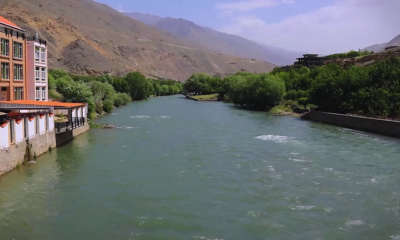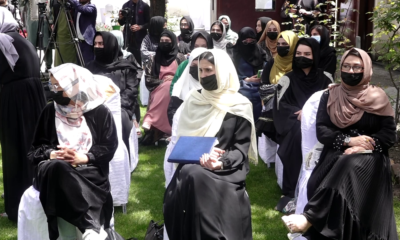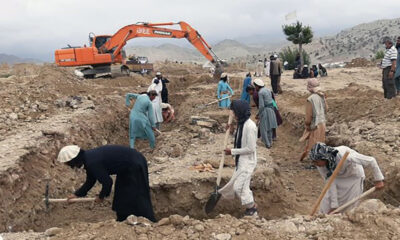Latest News
UN reports $402.9 million needed for Herat earthquake recovery support
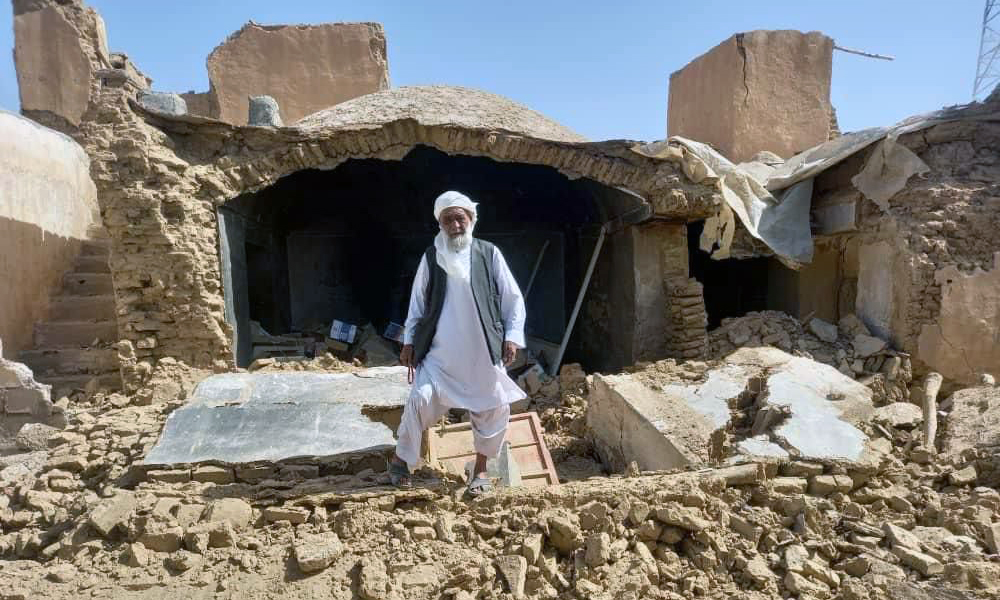
The United Nations said in a report released Thursday that $402.9 million is needed to support critical recovery and reconstruction efforts in Herat province following last year’s devastating earthquakes.
According to the Post-Disaster Needs Assessment (PDNA) report, issued by the UN, the World Bank, the European Union, and the Asian Development Bank, the scale of October’s was staggering.
Housing, the most severely affected sector, represents 41 percent ($164.4 million) of the total recovery needs.
The earthquakes damaged 49,578 houses, with 13,516 being completely destroyed.
Education is second most impacted sector, with 180,000 students and 4,390 teachers currently facing disruptions. The agriculture sector, accounting for the majority of jobs and income in the affected areas, has also suffered considerable setbacks.
The series of earthquakes on October 7, 11, and 15 killed over 1,500 people and injured more than 2,600 people.
The assessment, with UNDP as the technical lead, covered nine districts with roughly 2.2 million people.
It revealed that over 275,000 individuals were affected. Among these were 17,358 pregnant women, 17,146 infants, 3,976 people with severe disabilities, 3,207 elderly families, 6,806 women-led households, 3,176 individuals with chronic illnesses, and 147,000 children under 18.
Herat, Injil, and Zindajan districts were the hardest hit, with rural and vulnerable communities suffering the most.
The assessment also evaluated broader macro-economic and human impacts and proposed principles for a comprehensive recovery and reconstruction framework.
It cautioned about persistent widespread poverty, slow economic recovery, job scarcity, banking sector instability, adverse impact on mental health and wellbeing, and climate vulnerability, exacerbating Afghanistan’s ongoing economic challenges.
Way forward
The PDNA emphasizes the critical need to transition from immediate humanitarian aid to long-term recovery.
Recovery strategies should prioritize building community resilience, service restoration, earthquake-safe housing, livelihood options, social protection, and access to basic services, especially for the most affected families, the report stated.
“As the United Nations and partners, we stand in solidarity with the people of Afghanistan in these challenging times. The findings of the PDNA highlight the profound impacts of the earthquakes on the Herat region.
“We are committed to not only addressing the immediate needs but ensuring a sustainable and resilient recovery for those affected by the earthquakes. This tragedy presents an opportunity to rebuild stronger, more inclusive, and more resilient communities. The PDNA provides a blueprint for recovery and reconstruction aimed at forging a better future for those most affected in Afghanistan,” stated Indrika Ratwatte, Deputy Special Representative of the Secretary-General, Resident and Humanitarian Coordinator.
Latest News
Panjshir to Kabul water conduit project ‘waiting for budget approval’
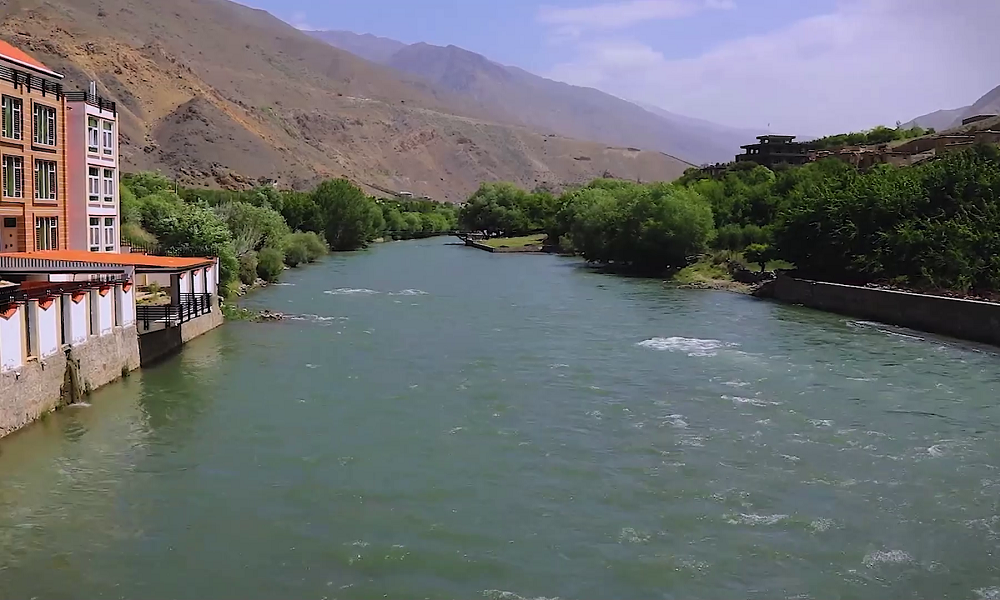
Afghanistan’s Ministry of Energy and Water is waiting for budget approval on the much-needed Panjshir to Kabul water conduit project – which, once completed, will alleviate the severe water shortage crisis in the capital.
Matiullah Abid, spokesperson for the Ministry of Energy and Water, confirmed the initial phase of reviewing and planning of the project is complete and construction work will start as soon as the budget has been approved.
Abid said the aim of the project is to help reduce water shortage issues in Kabul..
“The survey, design, and technical studies of the Panjshir water transfer project have been completed by the Ministry of Energy and Water, and the project [budget] has been sent to the leadership of the Islamic Emirate for approval,” he said.
“This project will commence once it is approved and the budget is available.”
The water conduit project will cover a distance of over 200 kms starting in Bazarak in Panjshir and ending in Tarakhail in Kabul.
Residents of Kabul have welcomed the plan and said once complete the additional water will help alleviate the drinking water crisis.
Experts meanwhile believe that this project could help Kabul’s groundwater levels to improve.
“I believe that the Panjshir water transfer project will help replenish underground water sources once again, and the people will have access to clean and healthy water. Additionally, with the transfer of Panjshir water, the agricultural lands around Kabul will also be managed with water, which, in turn, will create job opportunities for the people,” said Abdul Nasir Reshtia, an economic expert.
The plan to transfer water from the Panjshir River to Kabul was designed in 2012. In the 2020 budget of under the previous government, around $5 million was allocated for the annual transfer of 100 million cubic meters of Panjshir River water to Kabul.
The project was expected to be completed by 2023 but never got off the ground until the Islamic Emirate takeover.
Latest News
Female journalists complain about lack of access to accurate and timely information
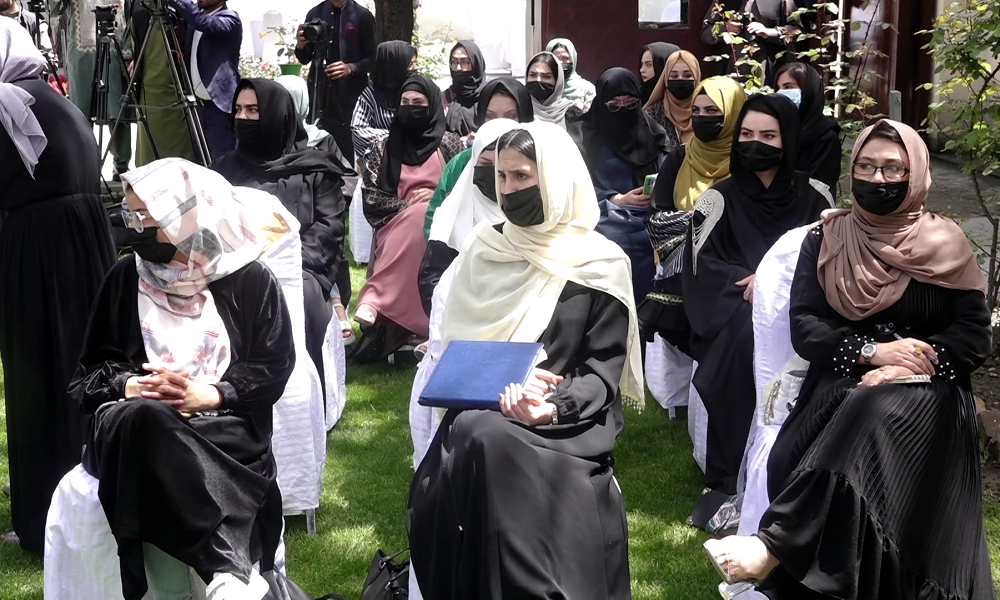
A number of female journalists say the lack of access to accurate and timely information leads to numerous challenges in their course of work.
According to some of these journalists, certain officials of the Islamic Emirate often refuse to provide information to female journalists, which creates a significant obstacle in fulfilling their professional duties.
One female journalist said: “Unfortunately, we have been subjected to intimidation by some institutions and media outlets, which hinders our work. In this regard, we urge our own media and various institutions to support female journalists the same way they support male journalists, and to allow us to continue our work.”
It is also reported that cultural and social restrictions make it difficult for female journalists to carry out their activities.
Female journalists have added that their exclusion from the media not only weakens freedom of speech but also deprives society of the perspectives and experiences of half of its population.
However, some media support organizations emphasize that the working conditions for female journalists have improved compared to last year, and currently, 745 female journalists are working in various media outlets across the country.
“The number of female journalists has increased compared to last year. Currently, 745 female journalists are working in the media. Last year, the number was 601,” said Hujjatullah Mujaddidi, head of the Afghanistan Independent Journalists Union.
Meanwhile, the Ministry of Information and Culture has stressed that the current media situation is favorable, and the ministry is committed to supporting journalists and media outlets in various sectors.
Since the IEA’s takeover in August 2021, many female journalists have lost their jobs, and some have been forced to leave the country.
Latest News
Pakistan ‘extends’ deadline for a week for Afghans to leave the country

The Pakistan government has pushed out the deadline to next week for hundreds of thousands of Afghan refugees to return to their country due to Eid al-Fitr.
AFP reported that a government official said on condition of anonymity that “the deadline has been extended until the beginning of next week due to Eid holidays.”
In early March, Islamabad announced a March 31 deadline for Afghans holding certain documentation to leave the country.
Afghans holding Afghan Citizen Cards (ACC) — issued by Pakistan authorities and held by 800,000 people, according to the United Nations — face deportation to Afghanistan after the deadline.
More than 1.3 million Afghans who hold Proof of Registration (PoR) cards from the UN refugee agency, UNHCR, are also to be moved outside the capital Islamabad and neighbouring city Rawalpindi.
On Friday, Pakistan’s Federal Interior Minister Mohsin Naqv chaired a high-level meeting to review the repatriation process of ACC holders.
He stated that continuous coordination is being maintained between the federal and provincial governments regarding the repatriation process, and the federal government will provide full support to the provinces.
Additionally, a committee has been formed based on the recommendations of the Chief Minister of Khyber Pakhtunkhwa, he said.
Naqvi also stated that Pakistan’s Minister of State for Interior Tallal Chaudhry will visit the provinces to resolve any issues arising during the repatriation process.
In addition, all arrangements for the repatriation of Afghan Citizen Card holders have been completed, Naqvi said, adding that a door-to-door awareness campaign is underway, and the mapping of Afghan Citizen Card holders has been finalized.
Holding centers, food provisions, and healthcare facilities have also been arranged for those returning, he said.
-

 Latest News5 days ago
Latest News5 days agoMore than 70,000 Afghans returned home in third week of March: IOM
-

 Health5 days ago
Health5 days agoGlobal organizations warn of health crisis due to aid cuts in Afghanistan
-

 International Sports5 days ago
International Sports5 days agoChennai grapple with IPL home truth after Bengaluru defeat
-
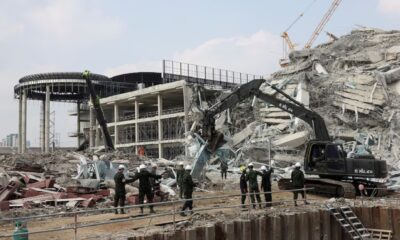
 World5 days ago
World5 days agoMyanmar quake death toll nears 700 as international aid starts to arrive
-

 World3 days ago
World3 days agoMyanmar quake death toll hits 1,700 as aid scramble intensifies
-

 Sport4 days ago
Sport4 days agoIPL 2025: Gujarat Titans beat Mumbai Indians by 36 runs
-
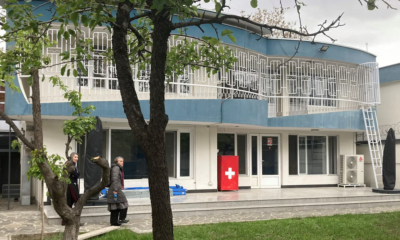
 Latest News2 days ago
Latest News2 days agoSwitzerland re-establishes presence in Kabul with humanitarian office
-
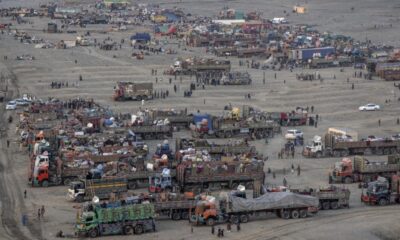
 Latest News3 days ago
Latest News3 days agoPakistan plans to expel 3 million Afghan refugees this year


